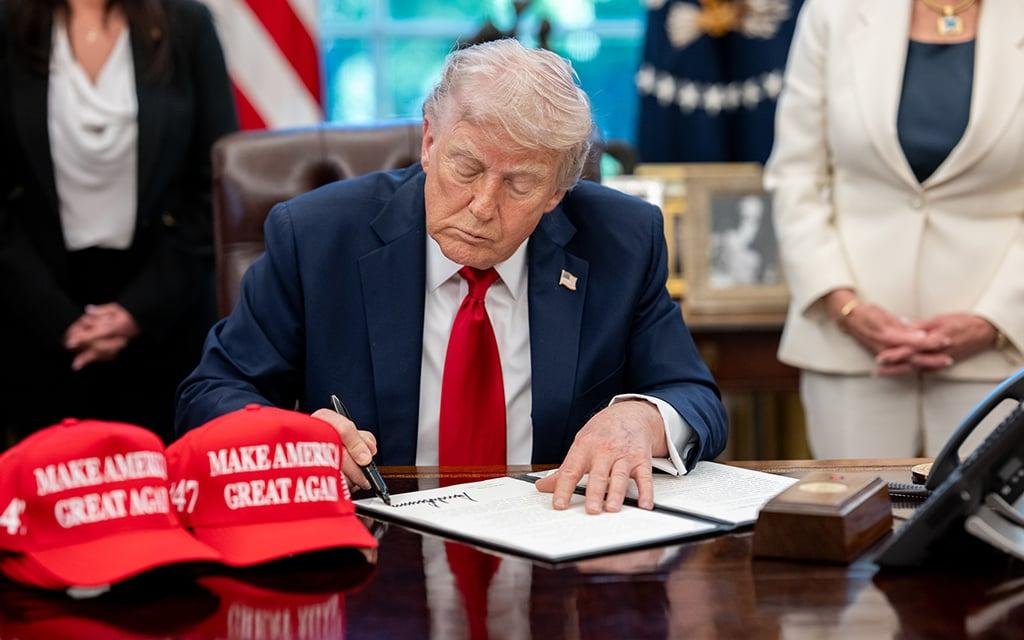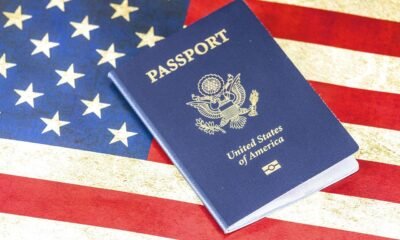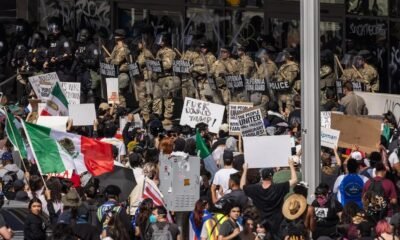analysis
When Does Trump’s Court Defiance on Deportations Cross Into a Constitutional Crisis?

Throughout history, U.S. presidents from both political parties have tested the limits of their authority. Notably, during the Civil War, Abraham Lincoln suspended habeas corpus. Similarly, Andrew Jackson defied a Supreme Court ruling, demonstrating a historical precedent for presidential resistance to judicial authority.
However, President Donald Trump’s actions regarding the deportation of Kilmar Abrego Garcia have raised eyebrows among historians and legal experts. Garcia, a migrant, was sent to El Salvador under controversial circumstances, prompting discussions about a possible constitutional crisis. “We’re in a moment of great constitutional peril,” stated Praveen Fernandes, vice president of the Constitutional Accountability Center.
Historically, clashes between the presidency and the judiciary often showcased moments where presidents upheld judicial authority. During the Civil Rights era, for example, the Supreme Court in *Brown v. Board of Education* mandated desegregation in public schools. When Arkansas Governor Orval Faubus obstructed this ruling, President Dwight D. Eisenhower dispatched the Army to enforce compliance.
Similar instances occurred in the 1960s, where both John F. Kennedy and Lyndon Johnson used federal forces to uphold court orders in Mississippi and Alabama. In each case, the presidents reinforced the judiciary’s role, contrasting sharply with Trump’s approach.
Amidst the controversy, Trump aides claim that the real crisis lies within the judiciary, alleging misuse of power by judges obstructing the executive branch. White House press secretary Karoline Leavitt criticized district court judges during a briefing, asserting that judges should not control the president’s lawful authority.
In historical context, President Andrew Jackson notably ignored a Supreme Court ruling regarding the Cherokee Nation, a stance that points to a broader pattern of presidential defiance. Furthermore, during the Civil War, Lincoln faced Chief Justice Roger Taney, who ruled against his suspension of habeas corpus. Lincoln, however, did not relent and continued to utilize wartime powers.
Trump’s recent invocation of the 1798 Alien Enemies Act, allowing detention and deportation without due process, marked a significant moment. Critics argue that the incident involving Garcia, who faced threats in El Salvador, exemplifies a potential crisis in constitutional law. Despite a ruling against his deportation, Trump’s administration proceeded to carry out the deportation, leading to a judiciary standoff.
After Abrego Garcia was deported, a federal judge ordered his return. The Supreme Court later supported this ruling, demanding that his release be facilitated. However, Trump has resisted these legal mandates, raising alarms among legal scholars regarding the implications for judicial authority.
Legal experts warn that there has been no precedent for such defiance of court orders in American history. Arizona Attorney General Kris Mayes articulated concerns about the current presidency’s disregard for judicial rulings, underscoring the gravity of the situation. “We are facing an unprecedented and lawless presidency,” she remarked, highlighting the ongoing tensions between the executive and judicial branches.

















